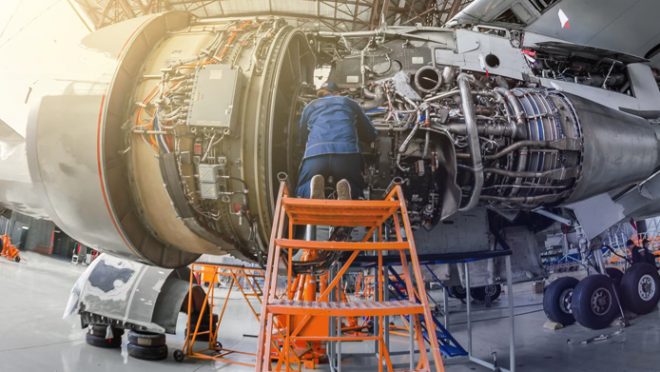Aeronautical Engineering: Pathways and opportunities in Bangladesh
Aeronautical Engineering: Pathways and opportunities in Bangladesh

Aeronautical engineering, a highly specialised branch of engineering, deals with the design, development, testing, and production of aircraft and related systems.
In Bangladesh, the field is still in its nascent phase, with increasing demand for skilled professionals in both the aviation and defence sectors.
This article explores the pathways to pursuing a career in aeronautical engineering and the opportunities it presents within the country.
Bangladesh’s aviation industry has been expanding over the past decade, with the emergence of new airlines and growing air traffic.
As a result, the need for aeronautical engineers to design, maintain, and improve aircraft systems is more pressing than ever.
Major airlines, both private and national, such as Biman Bangladesh Airlines, US-Bangla Airlines, and Novoair, are continuously increasing their fleets, which creates a demand for skilled engineers in this field.
In addition to commercial aviation, the defence sector, particularly the Bangladesh Air Force, also requires aeronautical engineers to support military aircraft maintenance and innovation. With the government’s increased focus on modernising the defence sector, there is potential for growth in aerospace technology, leading to more opportunities for aeronautical engineers.
Educational pathways
While aeronautical engineering is still a niche field in Bangladesh, several universities have begun offering specialised programmes to meet growing demand.
Prominent institution like the Bangladesh University of Engineering and Technology (BUET) offers courses related to aeronautical engineering under its Mechanical Engineering department. Students typically start by pursuing a bachelor’s degree in mechanical or electrical engineering, with an opportunity to specialise in aeronautics through elective courses or research projects.
Apart from BUET, the Military Institute of Science and Technology (MIST) also offers courses and research opportunities in aeronautical and aviation-related fields. MIST, being a military-focused institution, offers unique exposure to defence-related aerospace engineering projects.
Vocational training and diplomas
For those seeking a more hands-on approach, several aviation institutes in Bangladesh offer diploma programmes and vocational training in aircraft maintenance and aeronautical technology.
The Bangladesh Air Force Academy provides technical training in aircraft systems, preparing students for practical roles in the military and civilian aviation sectors. The Civil Aviation Authority of Bangladesh (CAAB) also collaborates with various institutes to offer certifications and technical courses in aircraft maintenance.
These diploma and vocational programmes are well-suited for individuals aiming to enter the workforce quickly without committing to a four-year university degree. Graduates from these programmes often find employment in Maintenance, Repair, and Overhaul (MRO) sectors or as technicians for commercial airlines.
Challenges in Aeronautical Engineering education
Despite the growing interest in aeronautical engineering, Bangladesh still faces challenges in providing comprehensive education in this field.
The primary issue is the limited number of specialised programmes that focus specifically on aeronautical or aerospace engineering. Most students must rely on mechanical engineering courses with an aeronautical focus or pursue advanced studies abroad to gain a more specialised education.
Moreover, the lack of cutting-edge research facilities and labs for aerospace engineering hinders students’ ability to gain practical experience during their studies.
While some universities and institutions offer simulation-based training, access to real-world aircraft systems for experimentation and design remains limited.
Career opportunities in Bangladesh
Graduates in aeronautical engineering can find career opportunities in Bangladesh’s rapidly growing aviation industry.
Major airlines like Biman Bangladesh Airlines and US-Bangla Airlines are always in need of engineers for aircraft design, safety checks, and maintenance.
The expansion of airports and increased air traffic also means that civil aviation authorities require aeronautical engineers to manage airport infrastructure and aircraft operations.
The defence sector, especially the Bangladesh Air Force, offers another critical career path for aeronautical engineers. The modernization of military aircraft and the development of defence-related technologies create a demand for skilled professionals who can innovate and maintain advanced systems.
Engineers working in this sector often deal with cutting-edge technology, including drones, fighter jets, and surveillance aircraft.
Though relatively nascent in Bangladesh, the research and development (R&D) sector presents potential growth for aeronautical engineers.
Collaborations between universities, defence sectors, and private companies could lead to innovation in aerospace technologies. While R&D opportunities are currently limited, the increasing focus on technology-driven defence solutions points towards future demand for engineers with specialised expertise in aerospace design and development.
Given the global nature of the aviation industry, aeronautical engineers from Bangladesh also have opportunities to pursue careers internationally. Many students opt to complete their advanced studies (master’s or PhD) abroad in countries like the United States, the United Kingdom, or Germany, where aerospace research and job opportunities are more established.
International airlines, aircraft manufacturers, and space agencies also actively recruit skilled aeronautical engineers, offering attractive career prospects for those willing to work abroad.
With the continuous growth of the aviation industry and the modernisation of Bangladesh’s defence forces, aeronautical engineering is set to become an increasingly important field. Although the country still has significant hurdles to overcome in terms of specialised education and research, the pathways for aspiring aeronautical engineers are expanding.
As more institutions begin to offer programmes tailored to the aerospace sector and the demand for skilled engineers rises, students can expect more opportunities both locally and internationally.
For students passionate about aircraft design, aviation technology, and aerospace innovation, pursuing a career in aeronautical engineering in Bangladesh could lead to a promising future in this dynamic and high-demand field.


